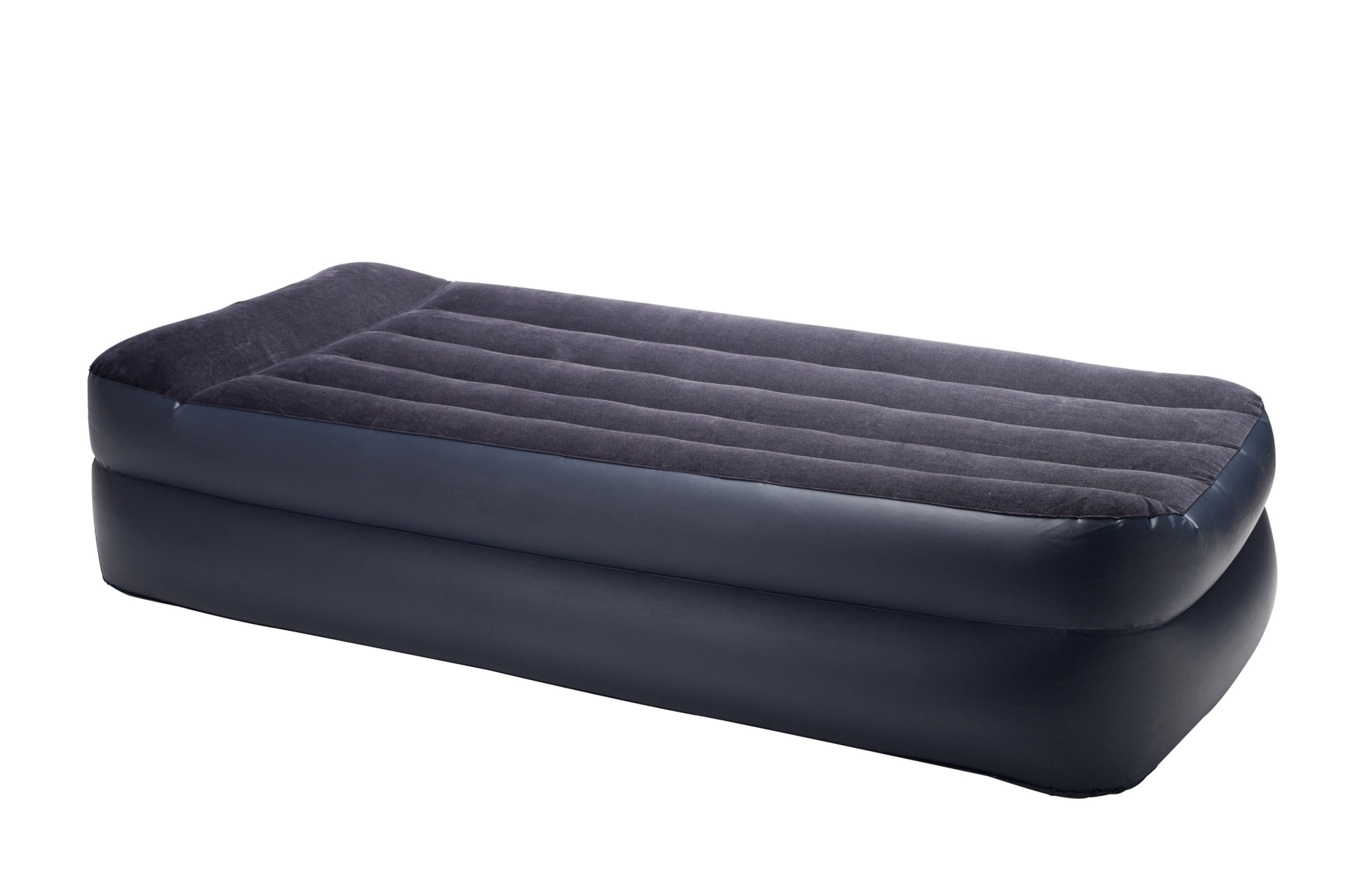Having an air mattress on hand is always a great idea. Whether you have expected (or even unexpected) visitors, are planning a trip or going camping, or need to have a versatile and comfortable sleeping option at home, an air mattress is a perfect option.
That said, one aspect to consider when owning an air mattress is the possibility that the mattress might deflate, and sometimes without warning. After all, no air mattress or airbed is 100% airtight – otherwise, they’d burst if someone were to lay on them when fully inflated.
This begs the question: Why does my air mattress keep deflating? And how can I prevent it from happening? We’re here to clear the air.
Why Your Air Mattress Keeps Deflating
There are two types of deflating when it comes to an airbed or mattress: quick and slow. A quick deflation means that there is a tear, puncture, hole, or other way for the air to escape rapidly. You might notice this when it begins to deflate before you’ve even put sheets on it, or you can feel the air escaping or yourself sinking when you lay on it.
On the other hand, a slow deflate can indicate one or more of several things. Over the course of this article we’ll take a look at these in more detail and discuss potential solutions.
Temperature
One of the biggest causes of an air mattress deflating overnight is a change in temperature. On the one hand, if the air put in the airbed or mattress cools down, it will condense, taking up less space inside the air mattress. Conversely, if the room is kept too warm or the temperature increases, the plastic or PVC material can soften and allow more air to escape.
Using the air mattress in a room with a constant temperature will help to keep it inflated at an even firmness throughout the night. An upper floor room will be warmer than a lower one, due to heat naturally rising. You could also try raising the air mattress off the floor, either with a frame or a bed base, to help the air circulate.
That said, air mattresses and airbeds at a higher altitude will lose air faster than at lower altitudes. Unfortunately, there’s no easy fix for that.
Over-Inflation
 It can be tempting to fill the air mattress or bed with as much air as possible for a firm sleeping surface, but this can actually be counterproductive. Overinflating your mattress can cause extreme stress to the seams, forcing the air to escape. It can also cause the mattress to be more prone to tearing when weight is placed upon it because of the increased stress.
It can be tempting to fill the air mattress or bed with as much air as possible for a firm sleeping surface, but this can actually be counterproductive. Overinflating your mattress can cause extreme stress to the seams, forcing the air to escape. It can also cause the mattress to be more prone to tearing when weight is placed upon it because of the increased stress.
As a general rule, only fill the air mattress or bed until it is 90% full, especially if it is the first time you are inflating it. This will allow space for displaced air when you lay on it, as well as protecting the seams and materials from unnecessary wear. The instruction manual that came with your specific model may have more information and detail on how to properly inflate your particular mattress.
Exceeded Weight Limit
All air mattresses and airbeds have a maximum weight capacity. Exceeding this can cause excess stress to the seams and materials, and force the air out prematurely. Additionally, it can stretch the PVC material and cause uncomfortable or unsightly bulges.
Preventing too many people from using it can help you avoid exceeding the weight limit. Children often enjoy playing on air mattresses or airbeds because they’re bouncy (we get it!), but this can cause long-term damage. Making sure to keep to the manufacturer’s guidelines of weight limits for your specific model of air mattress will help prevent this issue.
Leaky Valve

The place where air enters and leaves the air mattress or airbed is the most obvious place for air to escape. Over time, repeated use can wear down the seal on the valve and allow air to escape when pressure is applied to the air mattress. Similarly, threaded valves can sometimes not be tightened correctly or enough.
First off, you’ll want to check that the valve is tightened as much as possible. If it is still leaking air, it may require repair. It is possible for you to do the repair yourself, but as this is a tricky fix, you might want to seek an experienced professional to ensure you get the best airtight solution. In some cases, a faulty valve can signify that it is time to replace your mattress.
Tiny punctures or tears
If your air mattress isn’t visibly losing air rapidly, but instead deflates over an extended period of time, it’s possible that you have tiny punctures or tears that aren’t immediately obvious.
It’s possible to repair these, so don’t panic. The biggest challenge will be finding the holes before repairing. We have some tips up our sleeve on how to patch an air mattress with duct tape once you do find them.
You can also use a repair kit to make a more permanent fix, using spare material and either a specialized glue or epoxy. Most inflatable mattresses come with their own repair kit but if you can’t find it, you can also purchase them from any hardware store.
Age
The mattress has seen many years of occasional use, or more than a few months of daily use. You can’t find any single problem with it, such as holes, or tears, and you use it in the same place all the time.
As with most things, there isn’t a solution for aging materials on an air mattress or airbed. Most materials have a natural life span, and the PVC and other materials in your air mattress are no exception. If you find that your mattress has been fixed so many times that it is now more repairs than original materials, it could be time for a new one.
Modern air mattresses and airbeds have more advanced construction and design than those of years gone by. With built-in air pumps, puncture-resistant materials, and durable layering of PVC, they are sure to be reliable from the first day you inflate them.
Bottom Line
As you can see, there are a number of reasons why your airbed is deflating. If you have tried the solutions and are having no success, then it could be time to invest in a new one. Using the suggestions above and applying them to any new or reliably inflated mattress will help prolong its life and prevent premature deflation.

